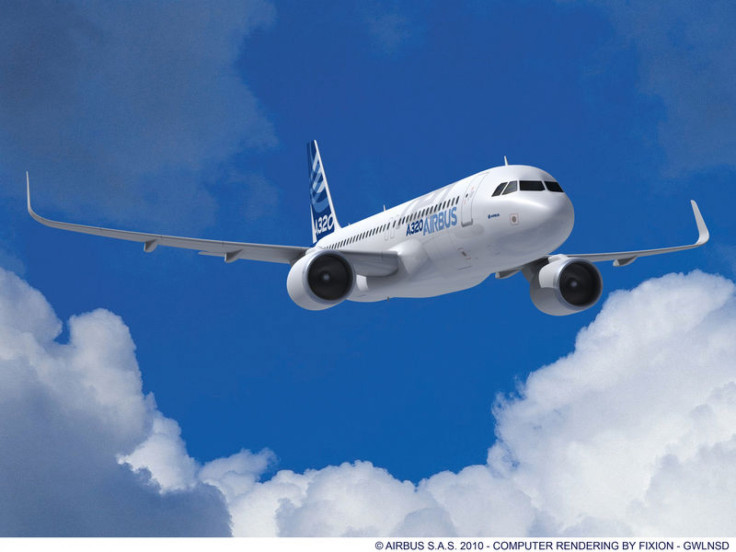AirAsia, SkyWest And Delta Order Fuel-Efficient Jets From Airbus, Mitsubishi And Bombardier
Airbus, Mitsubishi, Bombardier book big orders from AirAsia, SkyWest, Delta

Smaller and more fuel-efficient jets attracted about $15 billion in orders this week as carriers race to cut their single largest cost: the kerosene fuel that powers flight.
In the presence of UK Prime Minister David Cameron, regional discount carrier AirAsia Bhd. (PINK: AIABF) CEO Tony Fernandes announced Thursday at an Airbus manufacturing facility in Broughton, Wales, an order for 64 advanced, fuel-efficient A320neos and 36 regular A320s worth $9.4 billion at list prices. Buyers who purchase a number of jets typically get a discount off the list price.
“This order is primarily about expansion,” Fernandes told Bloomberg Television, pointing to strong business in Southeast Asia and China.
In June of last year, the Kuala Lumpur-based carrier ordered 200 A320neos for $18.5 billion. The high-tech commercial jet boasts 15 percent improved fuel economy and 8 percent lower operating costs compared to other models in the A320 family. It was the star of last year’s Paris Air Show, helping Airbus handily beat its main competitor, the Boeing Company (NYSE: BA), in total orders at the show. The three models in the A320neo family have attracted almost 1,500 orders since its launch in December 2010, making it the fastest-selling commercial aircraft in history.
Building the A320neo is scheduled to begin in 2015. AirAsia bought the 36 regular A320s to get more planes in the air before the delivery of the newer model. The A320 is being phased out.
Meanwhile, Mitsubishi Aircraft Corporation and SkyWest, Inc. (NASDAQ: SKYW) announced Thursday that the U.S. regional airline holding company based in St. George, Utah, would buy 100 Mitsubishi Regional Jets (MRJs) for a total list price of $4.2 billion.
In announcing the deal, which includes the option to buy another 100 MRJs for the same price, SkyWest President Bradford Rich said fuel economy was a key factor in choosing the MRJ.
"SkyWest believes the MRJ, with its significant advancements in fuel economy, passenger comfort and environmental friendliness, will be a valued addition to our fleet,” he said in the announcement of the deal.
On Monday, Toronto-based Bombardier Aerospace announced that Delta Air Lines, Inc. (NYSE: DAL) of Atlanta ordered 40 CRJ900 NextGen regional aircraft for a list price of $1.8 billion with the option to add another 30 planes to the order for an additional $1.4 billion.
In announcing the deal, Delta President Ed Bastian said his company chose the jet, “specifically because it is proven to be the most cost-efficient jet aircraft in its class for our operations.”
Meanwhile, the International Air Transport Association said Thursday that despite rising fuel costs and lower demand it expects the global airline sector to attract $8.4 billion in net profits next year above the $6.7 billion expected this year but well below the $15.8 billion reported in 2010.
© Copyright IBTimes 2024. All rights reserved.






















